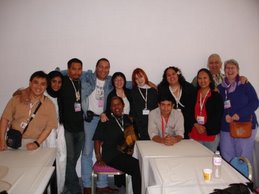Education and Information Systems, Technologies and
Applications: EISTA 2009
CALL FOR PAPERS, SUBMISSIONS, SURVEYS & NOMINATIONS
Call for papers for the 7th International Conference on Education and Information Systems, Technologies and Applications
Submissions Deadline: 26 November 2008
The Education and Information Systems, Technologies and Applications (EISTA) is announcing a Call for Papers for the 7th International Conference on Education and Information Systems, Technologies and Applications. The Conference will take place in Orlando , Florida USA , from 10-13 July 2009. Relationships between education/training and information communication technologies (ICTs) are increasingly accelerating, sometimes in unexpected ways, with original ideas and innovative tools, methodologies and synergies. The main objective of EISTA 2009 is to bring together researchers and practitioners from both areas, in order to support the bridging process between education/training and information communication technologies (ICTs) communities.
For further details:
Applications: EISTA 2009
CALL FOR PAPERS, SUBMISSIONS, SURVEYS & NOMINATIONS
Call for papers for the 7th International Conference on Education and Information Systems, Technologies and Applications
Submissions Deadline: 26 November 2008
The Education and Information Systems, Technologies and Applications (EISTA) is announcing a Call for Papers for the 7th International Conference on Education and Information Systems, Technologies and Applications. The Conference will take place in Orlando , Florida USA , from 10-13 July 2009. Relationships between education/training and information communication technologies (ICTs) are increasingly accelerating, sometimes in unexpected ways, with original ideas and innovative tools, methodologies and synergies. The main objective of EISTA 2009 is to bring together researchers and practitioners from both areas, in order to support the bridging process between education/training and information communication technologies (ICTs) communities.
For further details:






